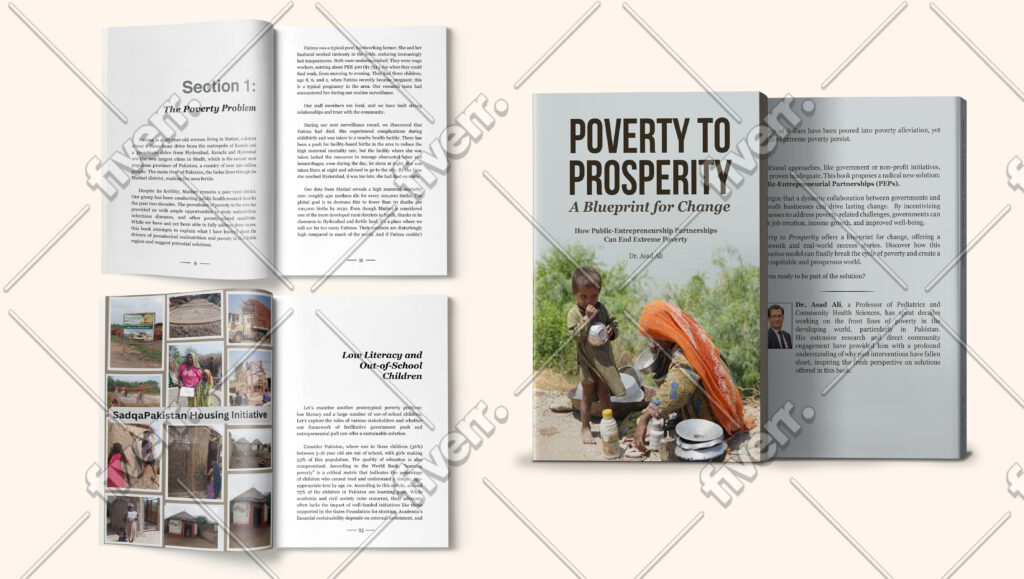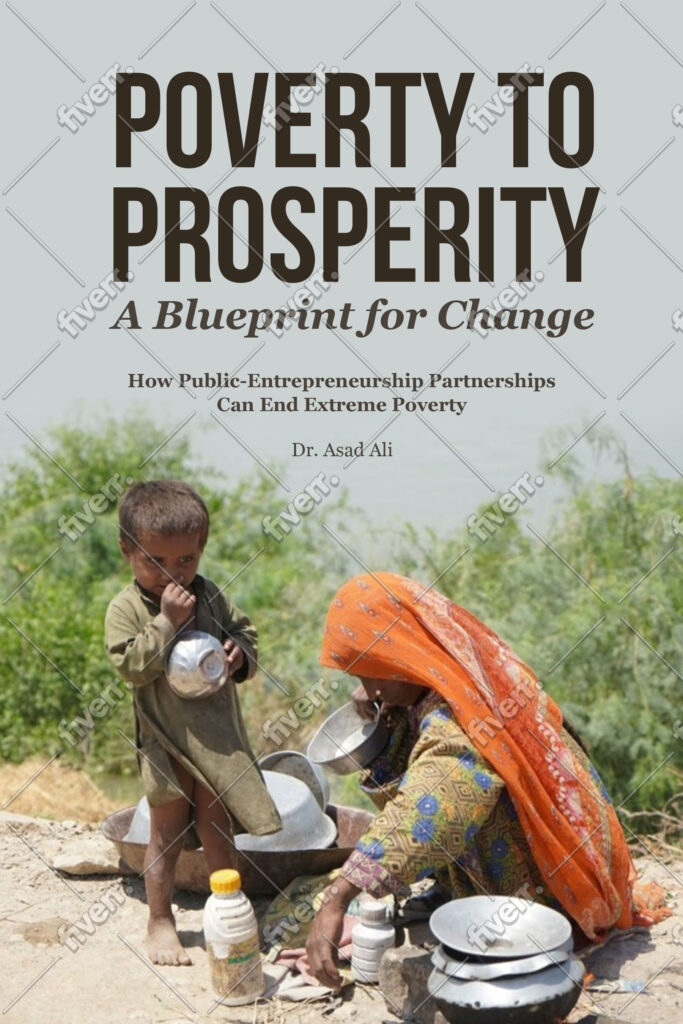Book Launch on Amazon KDP: 25th June 2025



In this book, you will discover:
Why past interventions have fallen short: Learn about the “players of poverty” – including individuals, civil society, government, and international organizations – and how their behaviors often perpetuate the poverty trap
A unique framework for sustainable solutions: Understand the Public-Entrepreneurial Partnership (PEP) model, where government facilitates and promotes for-profit businesses aligned with social good
The critical roles of government and the private sector: Explore how, working in tandem, these two key players possess the immense power to transform societies from poverty to prosperity
Real-world case examples: See how the PEP framework can be applied to complex problems like childhood stunting, low literacy, and even polio eradication, drawing on examples from Pakistan and beyond.
Lessons from a unique initiative: Delve into the challenges and successes of “Sadqa Pakistan,” an initiative leveraging transparency and community engagement to combat malnutrition and provide housing
We believe that leveraging the immense wealth and knowledge available today, combined with a fresh perspective on incentives and collaboration, can effectively combat absolute poverty.
